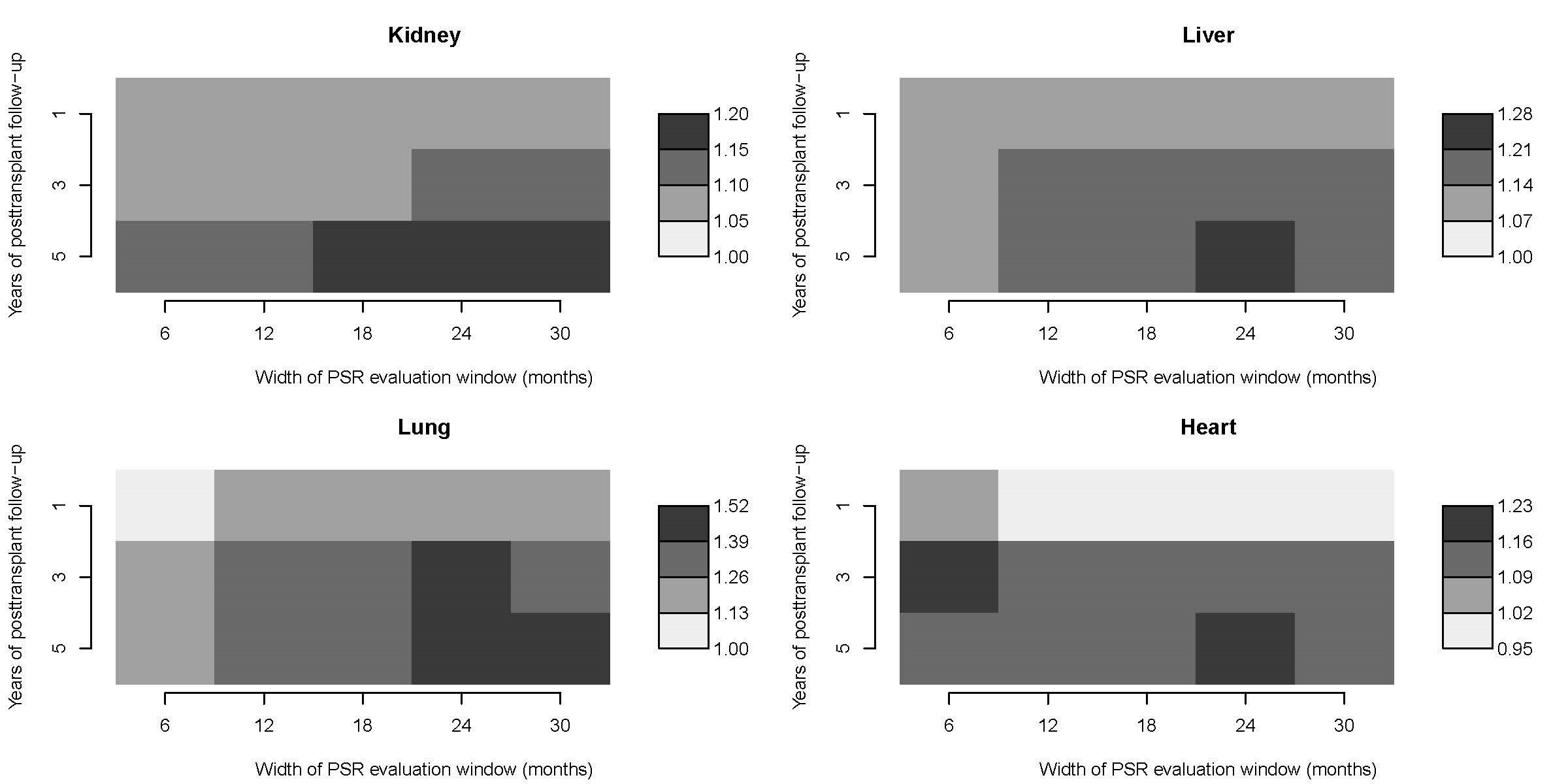Posttransplant Program Evaluations: Long-Term Outcomes are More Relevant to Patients Than Short-Term Outcomes
SRTR, Minneapolis, MN
Meeting: 2020 American Transplant Congress
Abstract number: 383
Keywords: Outcome, Patient education, Public policy
Session Information
Session Name: Quality Assurance Process Improvement & Regulatory Issues II
Session Type: Oral Abstract Session
Date: Saturday, May 30, 2020
Session Time: 3:15pm-4:45pm
 Presentation Time: 3:15pm-3:27pm
Presentation Time: 3:15pm-3:27pm
Location: Virtual
*Purpose: Posttransplant evaluations with 1-year follow-up are criticized for not identifying clinically meaningful differences between programs, not being the right outcome for patients, or including follow-up too old to be relevant.
*Methods: Utilizing SRTR data, we investigated the effect of posttransplant follow-up time and width of evaluation windows on the association of posttransplant evaluations at listing with subsequent graft survival. Evaluations with strong associations better discriminated eventual posttransplant outcomes and were therefore more useful to patient decision-making. Historical evaluations of deceased donor graft survival were estimated with period prevalent cohorts for 1-, 3-, and 5-year follow-up, and 6-, 12-, 18-, 24-, and 30-month evaluation windows. The associations of these evaluations at listing with subsequent posttransplant graft survival were estimated for kidney, liver, lung, and heart patients listed between July 12, 2011, and December 15, 2015, who subsequently underwent transplant before December 31, 2018.
*Results: Evaluations with 1-year follow-up had uniformly weaker associations than evaluations with 3- and 5-year follow-up. The 5-year evaluations had the strongest association in kidney and liver transplantation. Evaluation windows of 18 or more months usually had the strongest associations, although the width of the evaluation window did not modify the association in heart transplantation.
*Conclusions: This study made two important contributions to the understanding of public reporting. First, posttransplant evaluations with 5-year follow-up are more useful for patient decision-making than evaluations with 1-year follow-up. Second, posttransplant evaluation windows of at least 18 months are more useful to patient decision-making than evaluations with narrower windows.
Figure 1. The hazard ratios for posttransplant evaluations at listing with subsequent posttransplant graft survival. Darker colors indicate stronger associations than lighter colors. For example, in liver transplantation (top-right panel), the evaluation with 5-year follow-up and a 24-month evaluation window had the strongest association and was therefore the most relevant to patient decision-making.
To cite this abstract in AMA style:
Wey A, Salkowski N, Skeans M, Kasiske B, Israni A, Snyder J. Posttransplant Program Evaluations: Long-Term Outcomes are More Relevant to Patients Than Short-Term Outcomes [abstract]. Am J Transplant. 2020; 20 (suppl 3). https://atcmeetingabstracts.com/abstract/posttransplant-program-evaluations-long-term-outcomes-are-more-relevant-to-patients-than-short-term-outcomes/. Accessed February 19, 2026.« Back to 2020 American Transplant Congress

